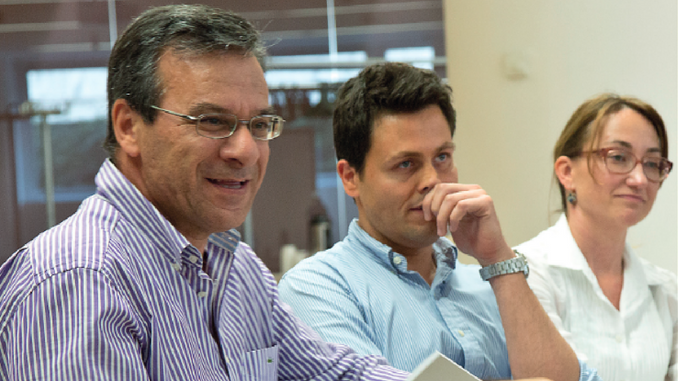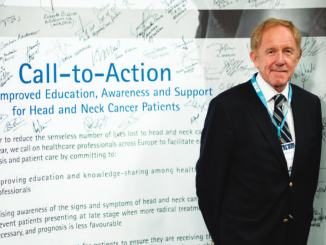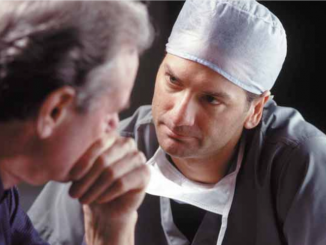
A course teaching leadership skills to cancer clinicians is proving a hit among the growing number of oncologists now finding themselves being asked to take on management roles.
According to a 2012 report from Leeds University Business School – ‘Clinicians in Management: Does it Make a Difference?’ – increasing the number of doctors on NHS hospital boards significantly increases quality in terms of Health Commission ratings, lower morbidity and increased patient satisfaction. A McKinsey Quarterly report – ‘When Clinicians Lead’ – also supported the need to harness the energies of clinicians as leaders, but pointed out that in many healthcare systems becoming “management” leads to a loss of income.
Medical education hardly addresses what makes a good leader or how to become one. Doctors who take over departments – perhaps the most talented or simply longest serving – have no pre-existing training in management. They have learned to fight for their own patients; now they have to learn how to get the best out of colleagues, and to make a case for resources and use them effectively.
In 2012, the Milan-based business school, SDA Bocconi, launched the Programme for Oncology Leaders in Europe (POLE), for mid-career clinicians who are preparing for leadership roles. Rosanna Tarricone, director of the Bocconi Centre for Research on Health and Social Care Management, says that all European governments are struggling with how to offer comprehensive healthcare while containing costs, and cancer treatments are amongst the most expensive. “Clinicians need to know how to manage scarce healthcare resources, including human resources. There is little preparation for this role. POLE came about to fill this gap, at least in part.”
The course started in 2012 with 14 doctors from across Europe selected through a competitive process with the support of their cancer units. POLE is now in its third iteration; 15 days training over five weekends covering nine months. It has already become one of the highest rated courses in this highly rated business school, with strong feedback from participants.
The course covers five major topics: European healthcare systems and policies; leading ‘self’; leading others; leading organisations; and health economics and health technology assessment. The emphasis is on practical hands-on knowledge, delivered by international experts alongside Bocconi staff: Nadia Harbeck from Munich on bringing research into practice, Denis Lacombe from EORTC on regulatory challenges in pan-European trials and how best to participate in large cooperative groups, Alberto Costa from Milan on certification of breast cancer units and David Cameron from Edinburgh on hospital management issues. Participants swap workplace experiences over dinner with peers and form friendships that may even turn into professional collaboration.
New skills, new confidence
Five doctors taking part in the current POLE course spoke to Cancer World about the challenges they faced in becoming leaders.
Simon Malas felt the transition from medical oncologist at Limassol General Hospital in Cyprus to head of oncology was a jump into the unknown. “We complete our speciality without knowing anything about health economics, about communication, about how to manage other people or yourself. You have to learn on the job, which is very difficult. How do you know if you have got it totally wrong?
“From one day to another you become the boss. One day you were with your colleagues at the same level and the next you are head of the department. I also have my clinical work and if they do not accept you as a clinician then you have failed.”
His biggest problem is getting new drugs into the system after the Cyprus health budget was cut by 10–15%. If I have a cancer patient who has to have this treatment and I cannot give it, that makes me feel very bad and frustrated.” What he is learning gives him the confidence to tackle resource issues. “I feel more secure. It gives me the strength to talk a bit more about health economics.”
Since her boss retired last year, Noemia Afonso has been running the medical oncology area of the breast cancer unit at the Portuguese Institute of Oncology in Porto, where 1,000 patients are admitted every year.
“It was very challenging. It was something I had never done before. I think we are not very used to working like a team: nurses, medical oncologists, surgeons. My efforts, together with my colleague responsible for the surgery area, are to make sure they all follow the same way of treating patients, and when there are doubts, they come to a discussion and we have a unanimous decision.”
Today, more cases are discussed at multidisciplinary meetings and nurses have a greater sense of involvement. “I find that if I give people more responsibilities, they cooperate more.”
Being young means she has to win the support of colleagues, not rely on a hierarchy. “It’s difficult to deal with people – to see if they are happy, they like to work here, they want to do something for this unit. Every group needs a leader. I’m not sure if I can be that leader yet, but I am trying to get all the information I can to make that decision.”
Etienne Brain chairs the committee that evaluates clinical research at the Hôpital René Huguenin, part of the Institut Curie at Saint-Cloud, France. In October he takes over as president of the International Society of Geriatric Oncology (SIOG).
He believes it is no longer enough to be an excellent clinician. “Because of the limited resources today and the price of new drug development, we need to streamline our potential to do something more fair and right for the general population.”
POLE is giving him the confidence to lead. “It is opening my eyes to a better way. If you don’t incorporate health economic issues with the different sources of power which impact on how you deal with resources, I think you miss a point. The challenge is to bring input from different colleagues to work together to contribute to improvements in the care delivered to patients. I want to be an actor in this process.”
He also values the chance to meet colleagues from across Europe. “I am half French and my mother was Ecuadorian. My wife is half Dutch and half English. I believe in sharing and cross-border collaboration!”
“Because of the limited resources today, we need to streamline our potential to do something more fair”
Surgeon Radoslaw Tarkowski from Wroclaw Medical University has a vision to build breast units in Poland. Having trained with the best in Italy and Germany, he is determined to improve the standard of surgery practised on women in his country.
“There are general surgeons who perform mutilating surgery. There are surgical oncologists performing mutilating surgery or breast conserving treatment, but it doesn’t look good. I’m ashamed I did it, but there came a time when I learnt new possibilities, so I do it another way now.
“My vision is to create a breast unit. I think I can learn a lot here, because I work in a multidisciplinary team where we treat patients with colorectal cancer or breast cancer.”
Tarkowski threw himself into role play, as actor Amedeo Romeo demonstrated the art of persuasion. “What I saw showed me ways to communicate with people. I’m a doctor so I always want to learn. When I go back, I will understand better my colleagues and my boss. They are more experienced doctors than me, so I need the know-ledge of how to talk to them.”
Medical oncologist Margaret Hutka trained at the Maria Skłodowska-Curie Memorial Cancer Centre in Gliwice, Poland, and worked at the Royal Marsden, London, before becoming lead medical oncologist in gynaecology at the Champalimaud Cancer Centre in Lisbon. Hutka aims to develop a team and research environment that will allow this relatively new unit to become a centre of excellence for gynaecological cancers.
She wants to share the experience she gained at her previous centres and implement it in this new setting. “The need to become the leader is from wanting to create a solid clinical and research structure so that at the end of the day it becomes a part of a successful professional journey.
“What attracted me to POLE was the idea of really understanding how to develop one’s skills and personality to become a leader; to be someone creative, inspiring and motivational at the same time, to effectively design a competitive unit.”
Course director, Rosanna Tarricone, says that the POLE course is going brilliantly. “Oncologists are excited about learning concepts and paradigms that seem so far from their background but that – at the same time – are so close to what they are expected to do in their own hospitals. They also enjoy networking with each other and exchanging experiences from so many different countries.”
Feedback places POLE amongst the highest ranked programmes at SDA Bocconi, which itself is one of the leading management schools in Europe. Tarricone puts this down in part to the partnership with joint organisers the European School of Oncology, with its knowledge of what oncologists want, and the fact that it receives an unrestricted grant from Novartis. Tarricone calls them “true partners”.





